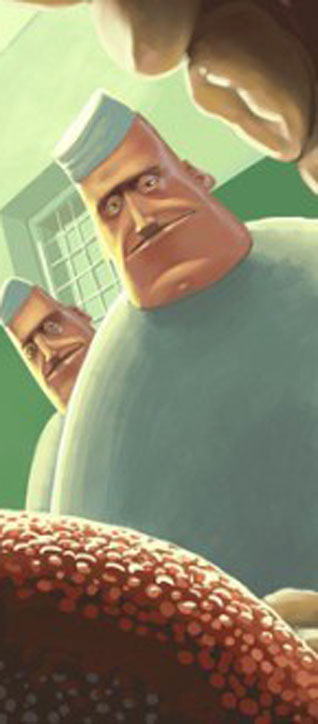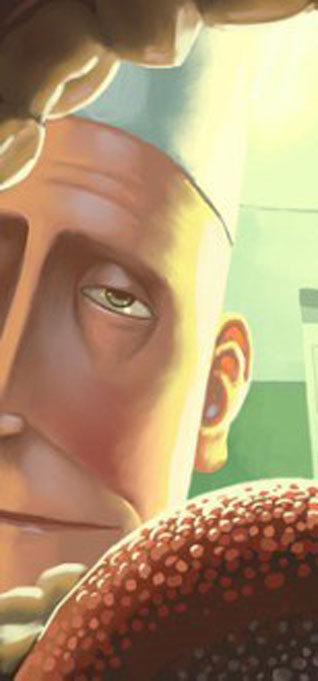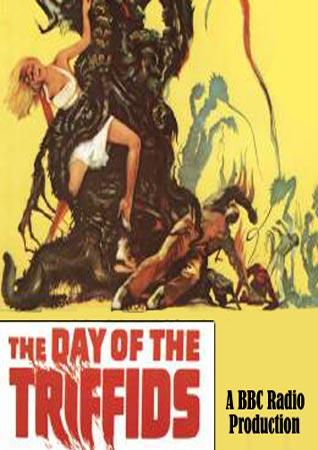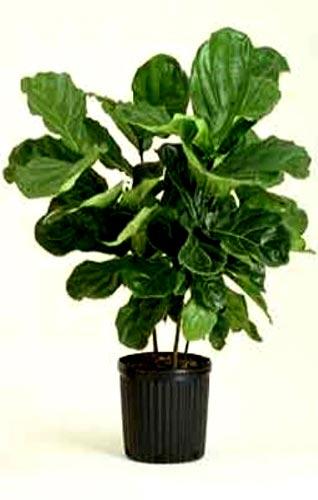Cuisine
Oh My! What Shall We Eat Now?
by CAROL KAESUK YOON
Several years ago, after having to drive for too long behind a truck full of stinking, squealing pigs being delivered for slaughter, I gave up eating meat.
I'd been harboring a growing distaste for the ugliness that can be industrial agriculture, but the real issue was a long-suppressed sympathy for its - or really, my - victims. Even screaming, reeking pigs, or maybe especially screaming, reeking pigs, can evoke stark pity as they tumble along in a truck to their deaths.
If you think about it, and it's much simpler not to, it can be hard to justify other beings suffering pain, fear and death so that we can enjoy their flesh. In particular, given our many connections to animals, not least of all the fact that we are ourselves animals, it can give a person pause to realize that our most frequent contact with these kin might just be the devouring of them.
My entry into what seemed the moral high ground, though, was surprisingly unpleasant. I felt embattled not only by a bizarrely intense lust for chicken but nightmares in which I would be eating a gorgeous, rare steak - I could distinctly taste the savory drippings - from which I awoke in a panic, until I realized that I had been carnivorous only in my imagination.
Temptations and trials were everywhere. The most surprising turned out to be the realization that I couldn't actually explain to myself or anyone else why killing an animal was any worse than killing the many plants I was now eating.
Surely, I'd thought, science can defend the obvious, that slaughterhouse carnage is wrong in a way that harvesting a field of lettuces or, say, mowing the lawn is not. But instead, it began to seem that formulating a truly rational rationale for not eating animals, at least while consuming all sorts of other organisms, was difficult, maybe even impossible.
Before you hit "send" on your hate mail, let me say this. Different people have different reasons for the choices they make about what to kill or have killed for them to eat. Perhaps there isn't any choice more personal or less subject to rationality or the judgment of others. It's just that as far as I was concerned, if eating a tofu dog was as much a crime against life as eating bratwurst, then pass the bratwurst, please.
So what really are the differences between animals and plants?
There are plenty.
The cells of plants, and not animals, for example, harbor chloroplasts, tiny green organelles that can turn the energy of light into sugar. Almost none of these differences, however, seem to matter to any of us trying to figure out what to eat.
The differences that do seem to matter are things like the fact that plants don't have nerves or brains. They cannot, we therefore conclude, feel pain. In other words, the differences that matter are those that prove that plants do not suffer as we do. Here the lack of a face on plants becomes important, too, faces being requisite to humans as proof not only that one is dealing with an actual individual being, but that it is an individual capable of suffering.
Animals, on the other hand - and not just close evolutionary relations like chimps and gorillas, but species further afield, mammals like cows and pigs - can experience what pretty much anyone would agree is pain and suffering. If attacked, these animals will look agonized, scream, struggle and run as fast as they can. Obviously, if we don't kill any of these animals to eat them, all that suffering is avoided.
Meanwhile, whether you pluck a leaf or slice a trunk, a plant neither grimaces nor cries out. Plants don't seem to mind being killed, at least as far as we can see. But that may be exactly the difficulty.
Unlike a lowing, running cow, a plant's reactions to attack are much harder for us to detect. But just like a chicken running around without its head, the body of a corn plant torn from the soil or sliced into pieces struggles to save itself, just as vigorously and just as uselessly, if much less obviously to the human ear and eye.
When a plant is wounded, its body immediately kicks into protection mode. It releases a bouquet of volatile chemicals, which in some cases have been shown to induce neighboring plants to pre-emptively step up their own chemical defenses and in other cases to lure in predators of the beasts that may be causing the damage to the plants.
Inside the plant, repair systems are engaged and defenses are mounted, the molecular details of which scientists are still working out, but which involve signaling molecules coursing through the body to rally the cellular troops, even the enlisting of the genome itself, which begins churning out defense-related proteins.
Plants don't just react to attacks, though. They stand forever at the ready. Witness the endless thorns, stinging hairs and deadly poisons with which they are armed. If all this effort doesn't look like an organism trying to survive, then I'm not sure what would. Plants are not the inert pantries of sustenance we might wish them to be.
If a plant's myriad efforts to keep from being eaten aren't enough to stop you from heedlessly laying into that quinoa salad, then maybe knowing that plants can do any number of things that we typically think of as animal-like would. They move, for one thing, carrying out activities that could only be called behaving, if at a pace visible only via time-lapse photography.
Not too long ago, scientists even reported evidence that plants could detect and grow differently depending on whether they were in the presence of close relatives, a level of behavioral sophistication most animals have not yet been found to show.
To make matters more confusing, animals are not always the deep wells of sensitivity that we might imagine. Sponges are animals, but like plants they lack nerves or a brain. Jellyfish, meanwhile, which can be really tasty when cut into julienne and pickled, have no brains, only a simple net of nerves, arguably a less sophisticated setup than the signaling systems coordinating the lives of many plants.
How do we decide how much sensitivity and what sort matters?
For those hoping to escape these quandaries with an all-mushroom diet, forget it. In nearly every way that you might choose to compare, fungi are likely to be more similar to us than are plants, as fungi are our closer evolutionary relations.
If you think about it, though, why would we expect any organism to lie down and die for our dinner? Organisms have evolved to do everything in their power to avoid being extinguished. How long would any lineage be likely to last if its members effectively didn't care if you killed them?
Maybe the real problem with the argument that it's O.K. to kill plants because they don't feel exactly as we do, though, is that it's the same argument used to justify what we now view as unforgivable wrongs.
Slavery and genocide have been justified by the assertion that some kinds of people do not feel pain, do not feel love - are not truly human - in the same way as others. The same thinking has led to other practices less drastic but still appalling. For example, physicians once withheld anesthetics from infants during surgery because it was believed that these not-quite-yet-humans did not feel pain (smiles were gas, remember).
Yet even as we shake our heads over the past, we continue to fight about where to draw the line around our tribe of those deemed truly human. We argue over whether those who love others of the same gender deserve full human rights. We ask the same about fetal humans.
The dinner menu pushes us further still. Do other species of animal deserve our consideration? Do plants? Fungi? Microbes?
Maybe this seems all nonsense to you. Perhaps you're having trouble equating a radish to a lamb to a person whose politics you hate to your beloved firstborn. It's not surprising. It is reliably difficult for us to accept new members into our tribe, the more so the less like us they seem. It can be infinitely inconvenient to take the part of every individual we come across, to share with it that most precious of commodities: compassion.
What should we have for dinner tonight? Who knows?
Human beings survive by eating other living things. I really want not only to eat, but to survive. Yet a nakedly logical way to judge the value of one kind of organism over another - the rightness of a plant's death versus an animal's - seems, to me, out of reach.
My efforts to forgo meat didn't last more than a couple of years. Still, I wonder what our great-grandchildren will think of us. Will we have trouble explaining to them why we killed animals or perhaps even plants for food?
And if so, what on Earth will we be eating?
[Courtesy: The New York Times]
March 15, 2011
Conversation about this article
1: Satvir Kaur (Boston, MA, U.S.A.), March 15, 2011, 12:44 PM.
When people ask me 'Are you vegetarian because of your religion?' I am very hesitant to say yes because I don't think that is the reason, although I did become a vegan after receiving Amrit. I mostly say 'No, I'm a vegan by choice.'
2: Brijinder Singh (New York, U.S.A.), March 15, 2011, 4:51 PM.
Guru Nanak [Raag Maajh, GGS:142]: "Look and see how the sugar-cane is cut down. After cutting away its branches, its feet are bound together into bundles, and then it is placed between the wooden rollers and crushed. What punishment is inflicted upon it! Its juice is extracted and placed in the cauldron; as it is heated, it groans and cries out. And then, the crushed cane is collected and burnt in the fire below. Nanak: come, people, and see how the sweet sugar-cane is treated!"
3: Aman (California, U.S.A.), March 15, 2011, 6:31 PM.
I'm always amazed at the extent to which people go to justify killing and gutting an animal for their taste buds. Unlike animals, God has given us the sense to feel mercy. Be merciful and don't kill animals. The other truth is that half of the meat- eaters out there wouldn't be eating meat if it meant that they themselves had to go out and kill, then gut, and then prepare the meat. It's all too convenient for a steak to just land itself on a plate in front of us. Perhaps if one needed to put some work into the matter, they too would see the pain in the animal's eyes as they literally take its life away. I know I couldn't do it.
4: R.S Minhas (New York, U.S.A.), March 15, 2011, 6:51 PM.
Eating patterns are a very interesting part of our spirituality and our connection with the rest of the universe. Generally, survival is considered a native dominant instinct to all life forms. In extreme cases, humans have even resorted to cannibalism for survival. As a spiritually evolved species, which the Guru Granth Sahib agrees we are capable of, it took us an infinite number (8,400,000!) of rebirths to get this human life where we have a chance to live at a higher level than the rest. Note Guru Tegh Bahadar and other shaheeds did not fall for the native survival instinct although they could have taken the survival route. They were at elevated states of awareness, much beyond their self. Our smaller, diet decisions, when made thoughtfully, can exhibit our conduct and awareness towards our environment. For the sake of survival, the choices are definitely more - if all plants and animals can be put on the table under a knife. The choice becomes narrower as we rule out humans, and many other species. If you examine scientifically, the Tree of Life - some life forms are closer to us than others. Plants are further off than animals. It's a fact, regardless of what the author tries to obfuscate. So if cannibalism is bad, then we need to be as far away from eating human life as possible. Don't we have enough coconuts, fruits, berries, apples, milk and honey? (I think we need to make an iphone app, so we know how genetically similar that cucumber in the supermarket counter is to us before we eat it, ha...ha...!)
5: Lara Kaur (Chicago, Illinois, U.S.A.), March 15, 2011, 7:55 PM.
Aman ji (# 3 above): And why doesn't your argument apply to vegetarians as well, especially if - taking your suggestion - they were required to grow their own vegetables and fruits from scratch? According to your theory, they too should be growing everything ... spices, and all! I think the author of the article has made her point well ... that is, no argument, one way or the other, holds water. Her conclusion, as I read it - and I agree with it wholeheartedly - is, follow your conscience, eat what you like ... and stop harassing the rest of us, no matter what you've decided to do vis-a-vis your personal diet.
6: Mohan Singh (Toronto, Ontario, Canada), March 17, 2011, 12:17 PM.
Meat and alcohol changes your temperament over a period of time. This is the reason when you go to a doctor, he/she asks you about your food and drink habits, so as to prescribe medicine accordingly. Chances of recovery are faster for pure vegetarians.
7: Brijinder Singh (New York, U.S.A.), March 18, 2011, 8:32 AM.
The most common disorder among vegetarians is vitamin B-12 deficiency. This causes anemia and depression. In Africa, Kwashiorkor is prevalent because people are not getting sufficient protein in their diets. Animal protein is good for your hair, skin, nails and muscles.
8: Mohan Singh (Toronto, Ontario, Canada), March 18, 2011, 10:46 AM.
Vitamins are subject to deplete fast in frozen vegetables, that is why in Western countries a variety of cereals are sold to eat with cold milk. Fresh vegetables are always good. For protein soya, chick-peas and grams (kaaley chholey) are good. No foods naturally contain vitamin B12 - neither animal or plant foods. Vitamin B12 is a microbe - bacteria - it is produced by micro-organisms. Vitamin B12 is the only vitamin that contains a trace element - cobalt - which gives this vitamin its chemical name - cobalamin - which is at the centre of its molecular structure. Milk, cheese and yogurts are good for B12; you need to have iron and folic acid to produce B12.
9: Brijinder Singh (New York, U.S.A.), March 19, 2011, 8:38 AM.
Vegetarians obtain missing nutrients from artificial sources such as pills or B12 fortified cereal. Plants and animals don't make B12, it is only made by microbes. Therefore, the only natural human food source that has B12 is animal product from animals that eat plants, which have B12 producing microbes on them. For vegetarians, the only recourse would be dairy (milk and cheese) and pills and cereals. The quantity and quality of the protein found in a serving of soy and beans is inferior to the quantity and quality found in a similar serving of meat.






